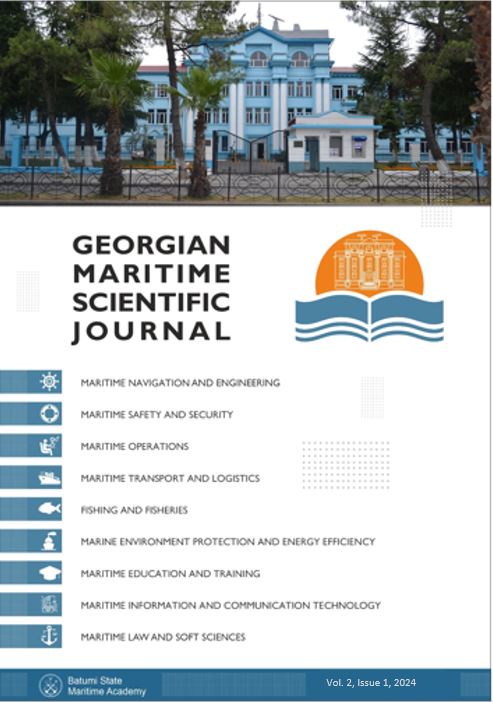Building a Sustainable Future of the Maritime Industry
DOI:
https://doi.org/10.70791/gmsj.2.2024.8007საკვანძო სიტყვები:
maritime transport, maritime education, seaports, innovative developmentანოტაცია
Maritime transport accounts for over 80% of global cargo shipments and offers numerous advantages. The main challenges facing maritime transport worldwide include increased operational costs of vessels, reduced emissions of pollutants from ships into the environment, and a significant number of maritime accidents and disasters due to improper or untimely actions by crews or shore services.
The research aims to formulate measures for building a sustainable future for the maritime industry in the context of sustainable development in a BANI world.
The methodological basis of the research included a systemic approach, engineering paradigm methods of analysis and synthesis, longitudinal analysis, selective surveys.
To build a sustainable future for the maritime industry in the context of sustainable development, it is not enough to modernize or implement innovations in the maritime sector alone, separate from other participants in the cargo transportation process from sender to receiver. The future of the maritime industry depends on all participants in the cargo transportation process, their strategic partnerships, which, when combined, can generate a synergy effect.
It is proposed to systematically introduce innovations throughout the value creation chain, which should be aimed at the dynamic balanced development of production, mining, processing enterprises providing finished products or valuable minerals for transportation, maritime education institutions, shipbuilding, machinery and equipment manufacturing, IT sphere, ship repair, suppliers of ship fuel, lubricants, spare parts, food, water, other transport companies, seaports, shipping companies, trade service organizations, market infrastructure, based on comprehensive analysis and forecasting of demand and consumer behavior.
Systematized directions of innovative development for the main links in the value chain - maritime transport, maritime education institutions, and seaports.
The research results confirmed the hypothesis regarding the use of the value creation chain, which will allow taking into account the needs and expectations of consumers in shaping the competitive advantages of maritime transport, reducing emissions of harmful substances from ships, reducing transportation costs, and increasing the income of maritime industry organizations.
The formulated proposals are recommended to be applied by maritime industry businesses to reduce the environmental impact on the environment, optimize costs, and improve the quality of transportation services for consumers.





